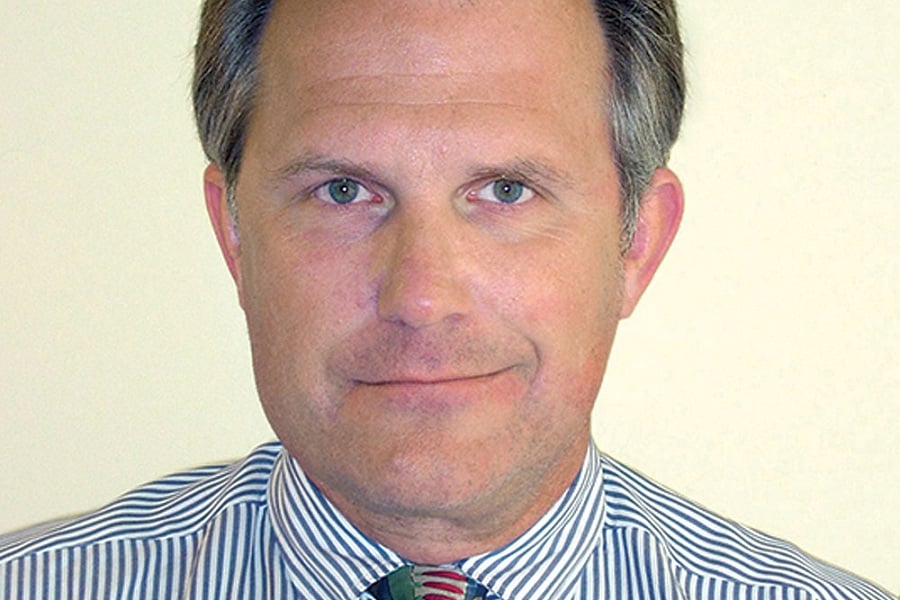

When the Biden administration nominated Gary Gensler to be SEC chair, Knut Rostad had high hopes that the agency would fortify fiduciary duty, the standard of care for investment advisers that he has devoted his professional life to defending.
Rostad, president of the Institute for the Fiduciary Standard, was one of the most vocal opponents of Regulation Best Interest, the broker standard of conduct that went into force two years ago under the previous Securities and Exchange Commission chair, Jay Clayton, during the Trump administration. Rostad and other critics said Reg BI was weak compared to fiduciary duty, which continues to govern advisers.
So far in Gensler’s tenure, Rostad is upset by what he perceives as an SEC effort to diminish fiduciary duty by equating it with Reg BI.
“This SEC is no better, and arguably worse, than the previous SEC regarding conduct standards,” Rostad told me over a recent dinner at the National Press Club, where we talked about his organization’s annual Fiduciary September program.
Actually, Rostad didn’t just tell me about his SEC misgivings. He punctuated them by raising his voice and gesturing. It’s likely others in the Press Club dining room noticed his passion for fiduciary duty.
Rostad is miffed by the SEC's guidance on Form CRS, a client disclosure document that was part of the Reg BI regulatory package. He interpreted the SEC guidance as telling investment advisers that they should avoid using the phrase “fiduciary duty” on their Form CRS.
In addition, Rostad said the first Reg BI enforcement case was an action the SEC could have taken under suitability, the previous broker standard. There was nothing about it that signaled the SEC would raise broker obligations to the fiduciary level.
He also thought a recent SEC staff bulletin on how financial advisers should address conflicts of interest did little to light a fire under brokers or distinguish between Reg BI and fiduciary duty.
“The SEC has not erased the line between brokers and advisers,” Rostad said. “This SEC has acted to erase fiduciary advice. It’s eye-popping. Any ‘friend’ would tell the SEC the truth: You screwed up, royally.”
An SEC spokesperson declined to comment.
This is a different attitude than Rostad had at the beginning of Gensler’s tenure. He said then that the SEC under Gensler could become the strongest it has ever been on investor protection. After all, Gensler once chaired a commission in Maryland that recommended the state legislature impose a fiduciary standard on all financial advisers in the state.
But at the SEC's helm, Gensler has pursued the broadest and deepest agency agenda in more than a decade. There was no room to overhaul Reg BI.
Gensler told me in a June interview he would not have voted for Reg BI had he been on the previous commission. But he wants to make sure it delivers “best interest” protection to investors.
The way the SEC is doing that is through guidance, examinations and enforcement. Gensler brought Barbara Roper, perhaps the highest-profile investor advocate, to the SEC to help him in that effort.
The SEC’s approach in its guidance is to emphasize the "best interest" aspect of the separate standards of conduct for brokers and advisers. An SEC senior staffer said on Sept. 8 at the Practising Law Institute’s SEC Speaks conference that although Reg BI and fiduciary duty are unique standards in some respects, they should both result in best-interest protection for investors.
Skip Schweiss, chief executive of Sierra Investment Management and chairman of the Financial Planning Association, is concerned that the SEC is conflating brokers and advisers.
“They’re two distinctly different business models, and I worry that the SEC is trying to merge them and eliminate any distinction between them in the eyes of the consumer,” Schweiss said during a Fiduciary September panel.
Many Fiduciary September participants say salvaging Reg BI requires a do-over.
“The SEC has to somehow make the best of Regulation Best Interest, but there are real limits to how far it can go without issuing a new regulation,” said Ben Edwards, an association professor at the University of Nevada Las Vegas law school.
But if that doesn’t happen in a Gensler-led SEC, it’s not going to happen in any SEC. Other Fiduciary September prescriptions are equally unrealistic, such as enacting legislation to create a new regulator specifically for financial planners.
Rostad and his allies instead should take solace in something else Schweiss said. He pointed out that a positive of Reg BI is that it has elevated the broker standard of conduct.
The Gensler SEC seems serious about making sure brokers don’t put their revenue interests ahead of their customers’ interests in achieving high returns. Probing Reg BI compliance is a “key component” of the SEC’s core examination program, a senior SEC staffer said at SEC Speaks.
That may put brokers on notice, but it’s not likely to lower Rostad’s voice.

Relationships are key to our business but advisors are often slow to engage in specific activities designed to foster them.

Whichever path you go down, act now while you're still in control.

Pro-bitcoin professionals, however, say the cryptocurrency has ushered in change.

“LPL has evolved significantly over the last decade and still wants to scale up,” says one industry executive.

Survey findings from the Nationwide Retirement Institute offers pearls of planning wisdom from 60- to 65-year-olds, as well as insights into concerns.
Streamline your outreach with Aidentified's AI-driven solutions
This season’s market volatility: Positioning for rate relief, income growth and the AI rebound
